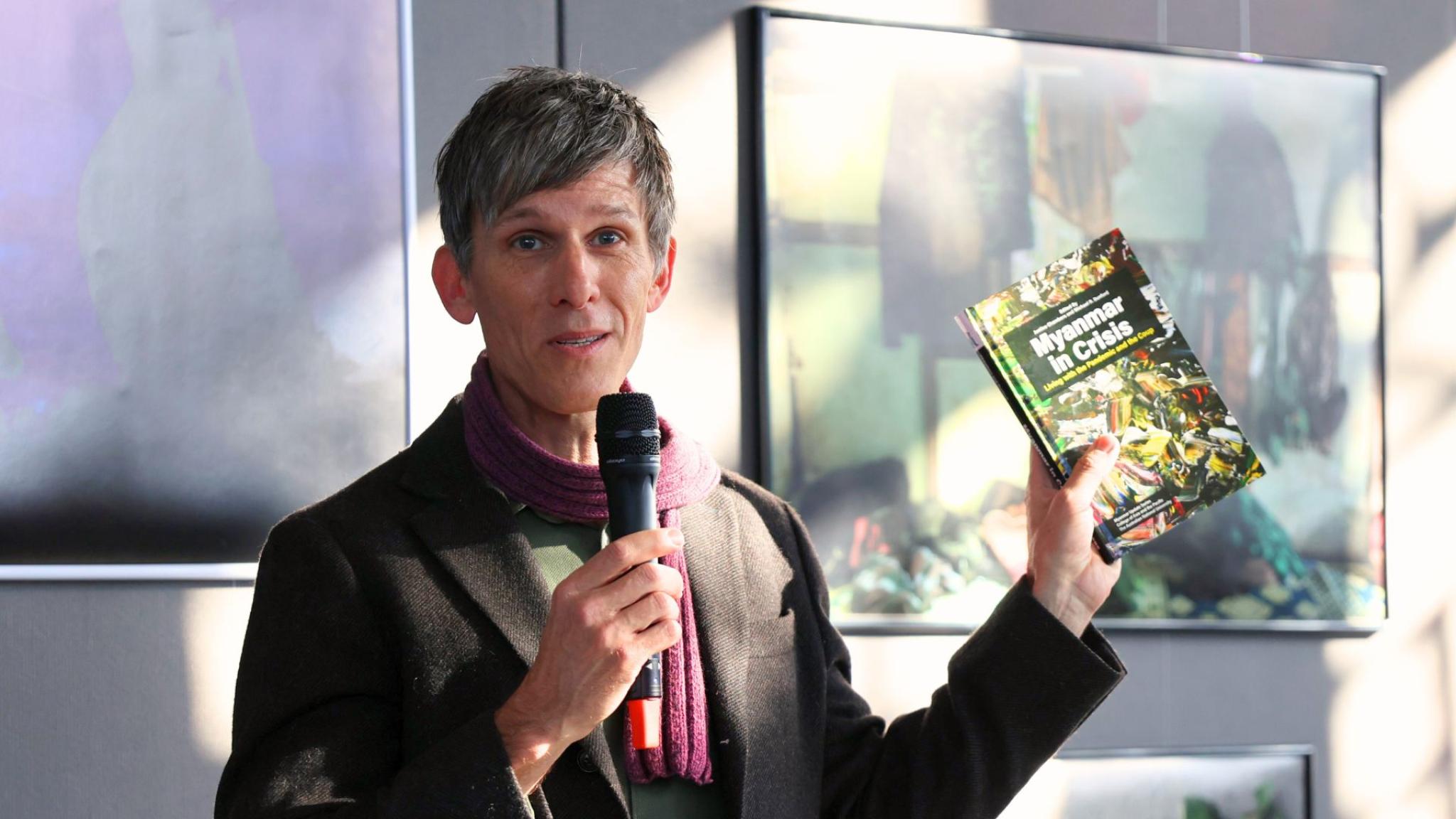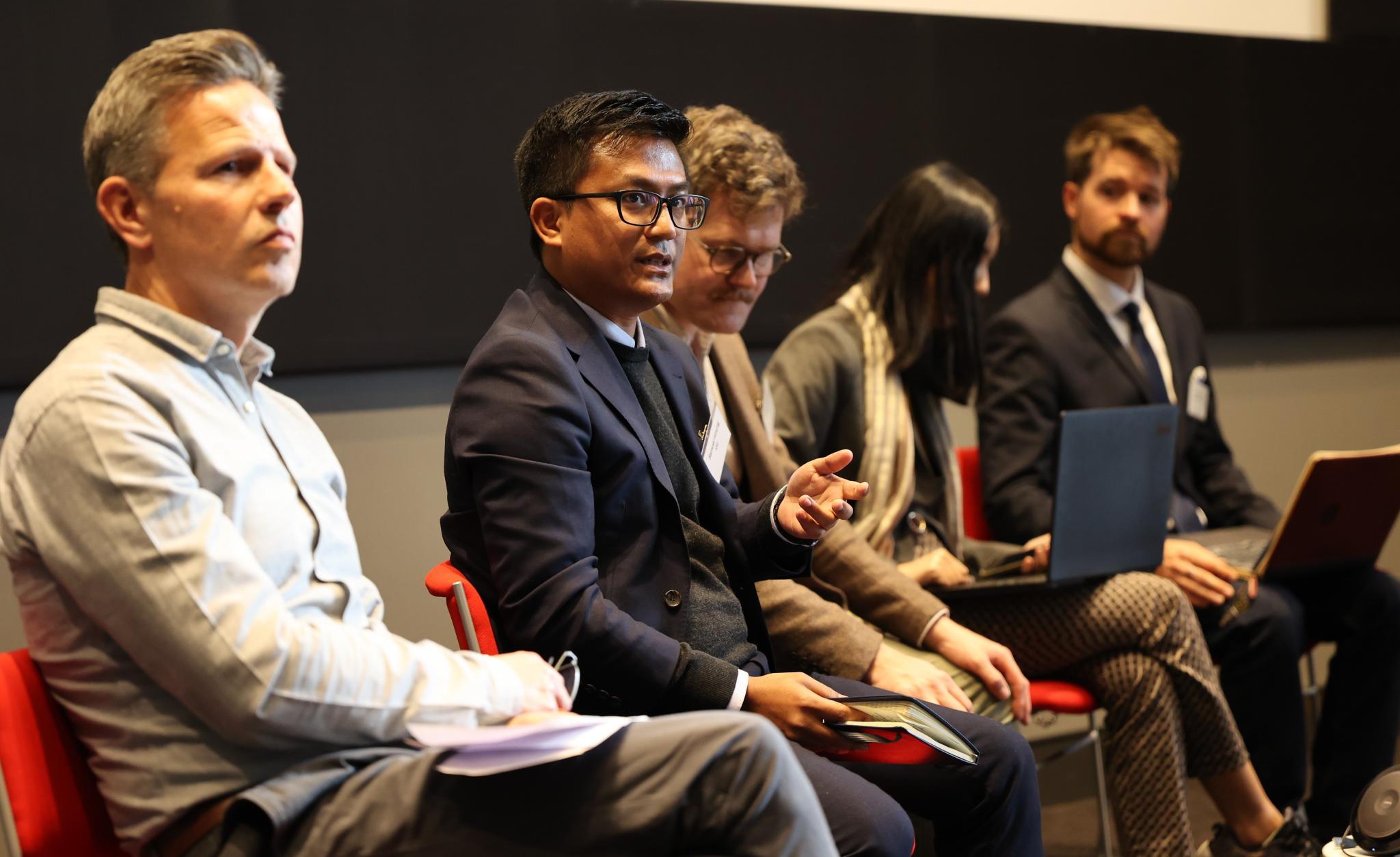Making sense of Myanmar in a time of turmoil: The role of the ANU Myanmar Research Centre

While Australians are familiar with the conflicts in Ukraine and Gaza, a significant yet overlooked humanitarian crisis is unfolding much closer to home. Myanmar, enduring the longest ongoing civil war in history, remains largely ignored.
Since the 2021 military coup, by some estimates, 50,000 lives have been lost in Myanmar. This devastating loss of life in our region underscores the urgent need for dedicated research to raise awareness, enhance diplomacy and reinforce peacebuilding efforts.
The Australian National University (ANU) stands at the forefront of Myanmar studies, with a longstanding reputation for excellence. ANU has been convening regular Myanmar Update conferences since 1990, making this the longest continuously running event on Myanmar politics, economics and society in the world. Additionally, ANU is the only educational institution in Australia that teaches the Burmese language.
Since its establishment in 2015, the ANU Myanmar Research Centre (MRC) has become Australia’s leading research institute focused on Myanmar studies. The Centre brings together specialists across various disciplines ranging from political science and history to law and medicine for regular dialogue and collaboration. Its board includes academic staff and research students, the University librarian, and academics from the University of Melbourne and UNSW.
Associate Professor Nick Cheesman, Director of the MRC, highlights the Centre’s unique position in Canberra, especially given Myanmar’s current political turmoil.
“The 2021 military coup fundamentally changed our engagement with Myanmar. Despite the challenges, the Centre has played a critical role in informing the Australian government about the new realities in the country”, said Associate Professor Cheesman.

The MRC has worked closely with the Canberra office of the National Unity Government of Myanmar (NUG), hosting visits by its ministers and other senior figures working towards the end of military rule. With funding from the Department of Foreign Affairs and Trade (DFAT), the Centre is set to expand, introducing a public lecture series and a new postdoctoral position. Associate Professor Cheesman hopes the growth of the Centre will encourage Australia to play a more active role in promoting peace and democracy in Myanmar.
The Centre is strategically located at the ANU in Canberra, which holds a leading reputation for engagement with Asia. Our Chancellor, the Hon Julie Bishop, was selected as special envoy to Myanmar by the United Nations earlier this year, adding to the connections between the ANU and this mainland Southeast Asian country.
The MRC provides opportunities for members to broaden their research networks both domestically and internationally. The Centre often hosts visiting fellows, who make a valuable contribution to discussions on Myanmar.
Dr Cecile Medail is a visiting fellow and research affiliate at the Centre. Her research explores the relationships between ethnic minority groups in Myanmar and their impact on social cohesion.
Dr Medail argues that Australia can do more to end the conflict.
“Collaboration between the NUG and ethnic actors is crucial to defeating the military. Moreover, ethnic actors ensure humanitarian aid reaches affected populations, bypassing military interference,” she said.
During her time with the MRC, Dr Medail has engaged with visiting NUG officials and briefed policymakers, contributing to various academic publications, including a recently published article in a special issue of the Journal of Contemporary Asia on revolution and solidarity in Myanmar edited by Associate Professor Cheesman.
“My time with the MRC has been invaluable, allowing me to present my research and publish three papers,” she said.
In addition to her research and publications, Dr Medail served as the lead convenor of the 2023 Myanmar Update conference, collaborating with her former PhD supervisor, a Burmese language lecturer, and a Myanmar PhD student. She also co-convened the Myanmar Dialogue Series, a presentation and Q&A discussion to foster new and innovative research ideas.
The MRC contributes to cross-disciplinary dialogue across ANU - helping to build connections between researchers and HDR students from different ANU Colleges and Schools. The Centre also has many members who are students from Myanmar, who have their own ANU Myanmar Students Association. It also invites and funds visits by researchers from Myanmar under a scheme run jointly with the University of Melbourne.
This vibrant group of scholars make a valuable contribution to the MRC. One such scholar is Samuel Hmung, a PhD student from Myanmar with over a decade of experience in youth activism, electoral politics, and peacebuilding. Drawn to ANU for its renowned Asian studies programs, Samuel has found the MRC instrumental in his academic and professional development.
“The MRC is exceptional for Myanmar studies, housing the largest concentration of Myanmar-focused scholars in any developed nation,” said Samuel.

Through the MRC, Samuel has participated in numerous academic events and expanded his professional network, benefiting greatly during his PhD program. Like Dr Medail, he urges Australia to support Myanmar’s people more robustly.
“Australia can direct more funding to research, academic activities and scholarships, which Myanmar’s people need now more than ever. Systematic and well-planned assistance will undoubtedly benefit the people of Myanmar and their advocacy for justice, human rights, and democracy, which, in turn, benefits the stability and prosperity of the region as a whole,” he said.
The Myanmar Research Centre plays a significant role in meeting the growing need for research and engagement with Myanmar. Associate Professor Cheesman is enthusiastic about expanding partnerships and fostering a vibrant community of Myanmar scholars.
“If you have an interest in Myanmar or are curious about its dynamics, we invite you to join us,” he said.
To learn more about Myanmar and the work of the ANU Myanmar Research Centre, click here. If you are an ANU staff member or HDR student interested in becoming a member of the Centre, please fill out this form.